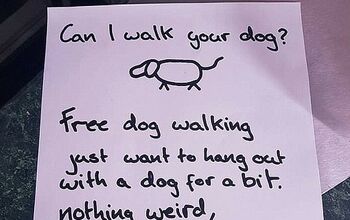Your Work May Be Stressing Out Your Pet!

For many of us, our pets are more than just animals; they are cherished members of our families. We do everything possible to give them the best quality of life, from high-quality food and treats to regular vet check-ups and plenty of love. But what if one of the biggest stressors in your life is actually contributing to your best friend’s anxiety? A recent study suggests that your work-related stress could be taking a toll on your dog’s mental health.
A new study published in Scientific Reports, led by Tanya Mitropoulos and Allison Andrukonis, reveals a fascinating, and perhaps concerning, example of the human/animal bond. Their research found that when dog owners dwell on work problems after hours, their dogs also exhibit more signs of stress.
The phenomenon is known as “work-related rumination.”
The study involved 85 working dog owners. Researchers measured their job stress levels and how often they continued to think about work during their free time. Each owner was asked to complete a survey with questions about their professional life, such as: “Are you irritated by work issues?”
They then assessed the owners’ perceptions of their dogs’ stress. Plus, they tracked actual behaviors associated with stress and anxiety in dogs, like whining, pacing, panting, having their tail between their legs, leaning into people, or restlessness.
The findings were clear: owners with higher job stress had dogs who showed more stress-related behaviors.
This connection held strong even when other sources of stress in the home were considered. Interestingly, many owners were unaware that their dogs were experiencing high stress levels; it was identified mainly through the dogs’ behaviors.
So, how does this stress transfer happen? Dogs are incredibly sensitive to their owners’ moods, a concept scientists call “emotional contagion.” Dogs can pick up on human feelings through subtle cues like tone of voice, body language, and overall demeanor. A dog notices when their owner is preoccupied, irritable, or distant due to work stress. Over time, this consistent exposure to their owner’s negative emotional state can significantly impact the dog’s happiness and mental well-being.
Beyond emotional contagion, the study also suggests another explanation. When owners are consumed by work problems, they may become less patient, more withdrawn, or less consistent with the daily routines that dogs thrive on, like walks, playtime, and feeding schedules. These changes in care and interaction can trigger higher stress levels.
This research underscores the importance of understanding how our own emotional states and behaviors can impact our pets.
“ Playing with your dog is a great way to pull your thoughts away from work,” explained study author Dr. Mitropoulos. “Plus, if your dog is stressed due to not receiving enough attention because you’re busy mulling over work issues, playing with your pet is a great way to give him the attention he needs while also pulling your mind away from work.”
The takeaway is clear: consciously putting work aside when you walk through the door doesn’t just benefit your own health and peace of mind. It also plays a crucial role in prioritizing your pet's mental and emotional well-being, allowing them to truly enjoy the best quality of life.
Join the PetGuide community. Get the latest pet news and product recommendations by subscribing to our newsletter here.

Britt Kascjak is a proud pet mom, sharing her heart (and her home) with her “pack” which includes her husband John, their 2 dogs – Lucifer and Willow – and their 3 cats – Pippen, Jinx, and Theia. She has been active in the animal rescue community for over 15 years, volunteering, fostering and advocating for organizations across Canada and the US. In her free time, she enjoys traveling around the country camping, hiking, and canoeing with her pets.
More by Britt























